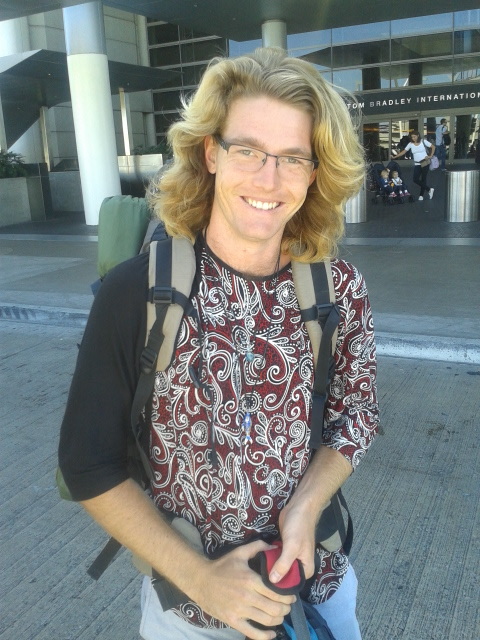|
One of the most interesting things about Thailand is its government. Unlike many Western countries, Thailand has never been a full democracy. There is a long history of authoritarian rule here (authoritarian is when one person, or a group of people, have much more power than everyone else – they author the laws, and enforce them as well), and in the last few years, rising tensions between different groups of people have resulted in violence. Now, a military government has stepped in to stabilize the country, although many are worried that they will stay for much longer than is necessary. Just last week, Thailand's constitutional drafting committee rejected its own draft – the 20th try at a Thai constitution – and it'll be about two years before the next public election.
Here, if you criticize the King and Queen, even past kings and queens, you can get sent to prison for 20 or 30 years. Other restrictions on free speech make press coverage of certain issues dangerous. As a Westerner, I have my own views of these laws. But I've also had some interesting conversations with educated Thais who like it this way. "I prefer an authoritarian form of government," one of my schoolmates told me over dinner a few nights ago. "I think it's important for people to have an example to look up to, and in America, where you have all this freedom, people still just want more and more. So I don't think that's any better." My first thought at hearing this was, "Wow, your education system did a good job." The history that Thai students are taught in school is all about the greatness of Thailand's kings, and it tells students about all the ways in which they protected the nation from its evil neighbors. People learn, from an early age, that without the King and Queen, who they call "Dad and Mom," society would fall apart. My second thought was, "Wow, my education system did a good job." In America, our national history also tells a certain story. In schools, we pledge allegiance to the flag, and many of us are taught to associate America with virtue ("a shining city on a hill"). At the same time, our policies during the Cold War strengthened Thailand's military as the nation further restricted free speech, labeling any criticism of human rights abuses as "Bolshevik propaganda" and throwing people into jail - or worse. So while I believe that people deserve to have a say in the way that they're governed, it's difficult to say that my friend is wrong. She was just learning history.
0 Comments
Leave a Reply. |
Adam De GreeI am a senior in college, studying philosophy, and am visiting family in the Czech Republic and travelling and studying in Europe and Asia. Archives
January 2016
Categories
All
|
|
SUPPORT
|
RESOURCES
|
|


 RSS Feed
RSS Feed



